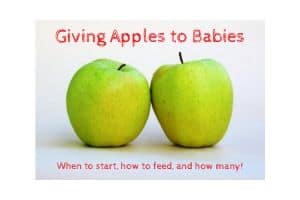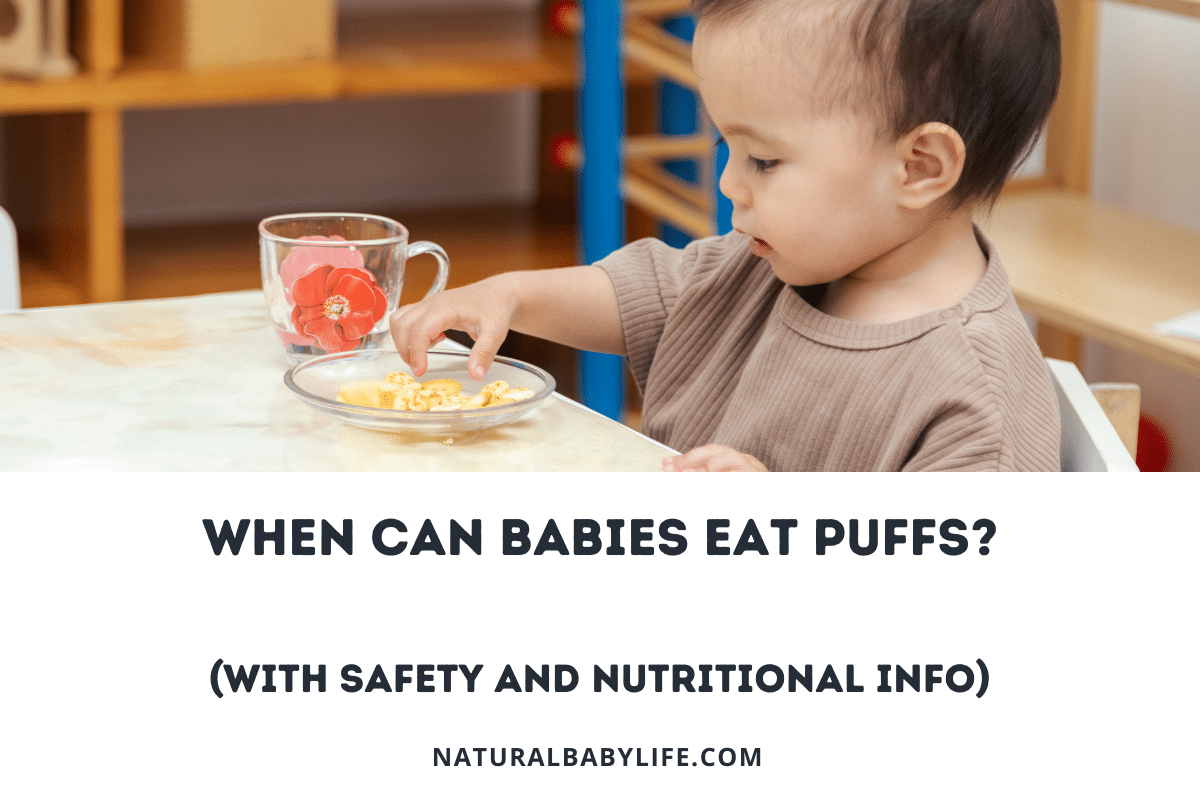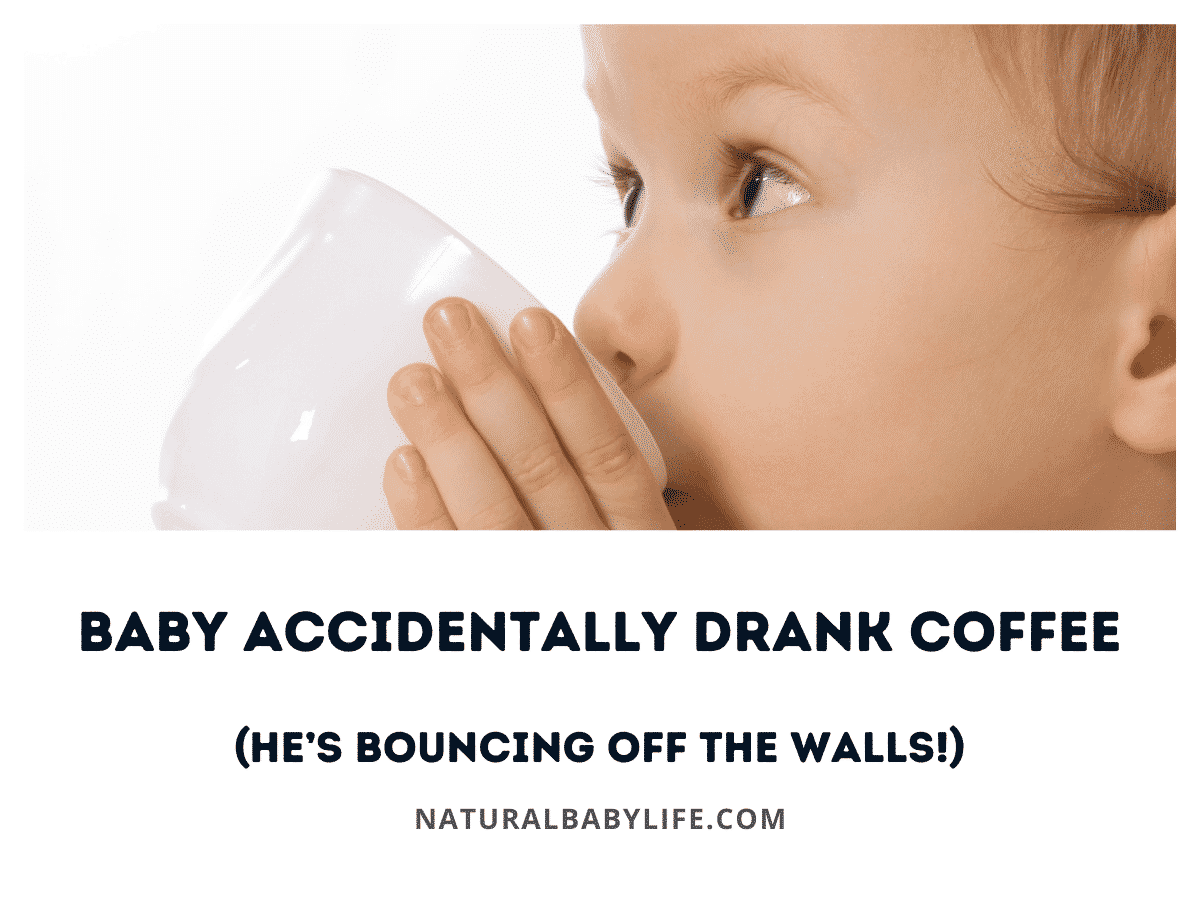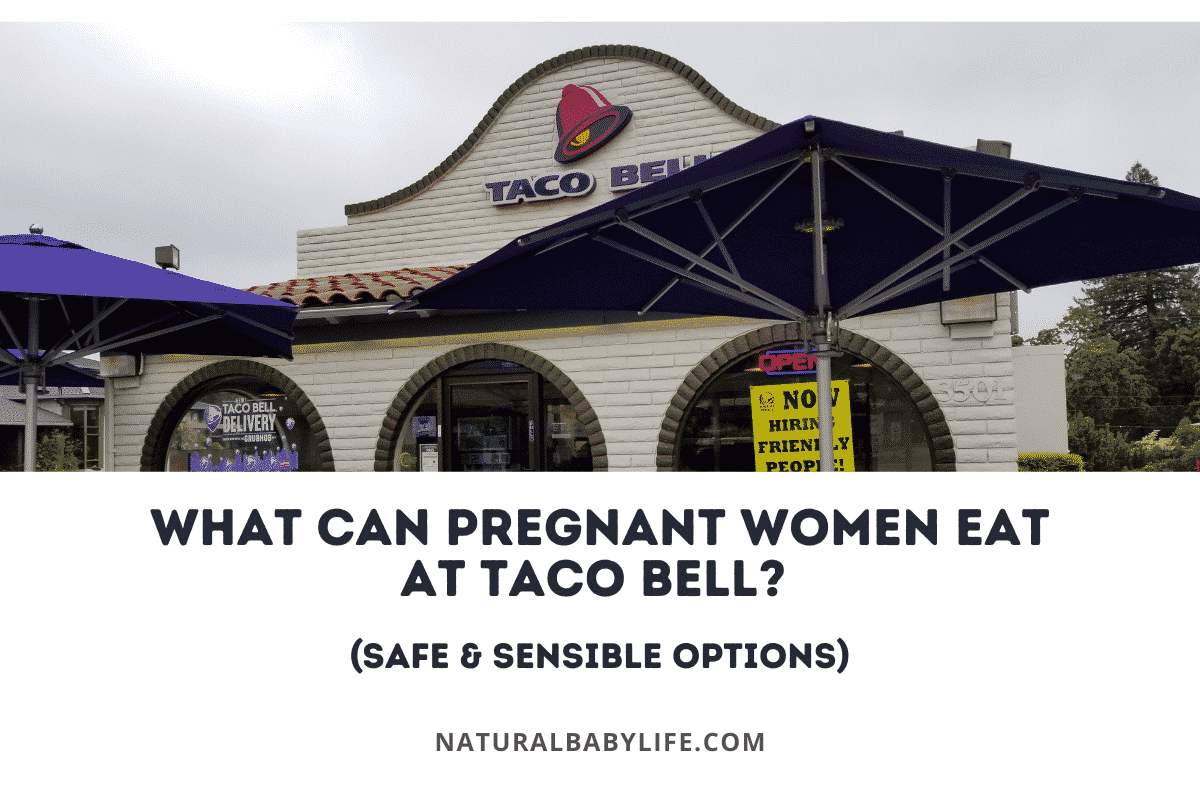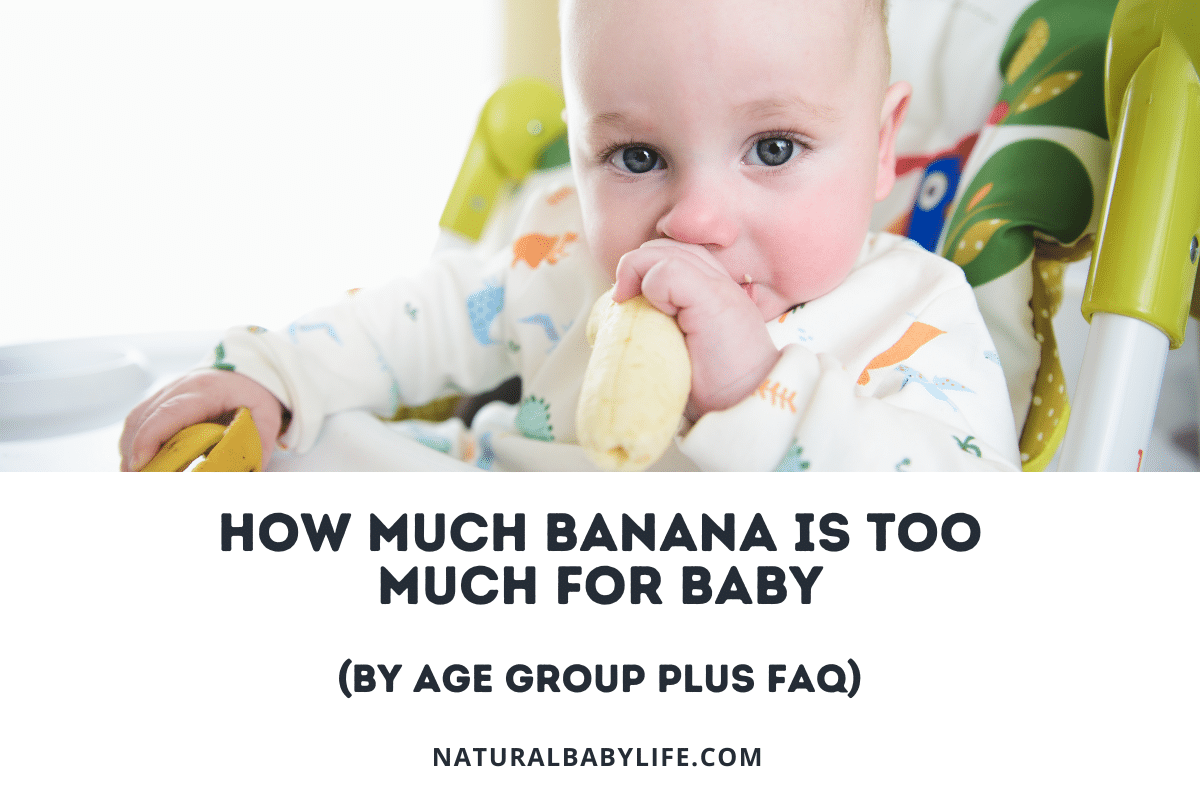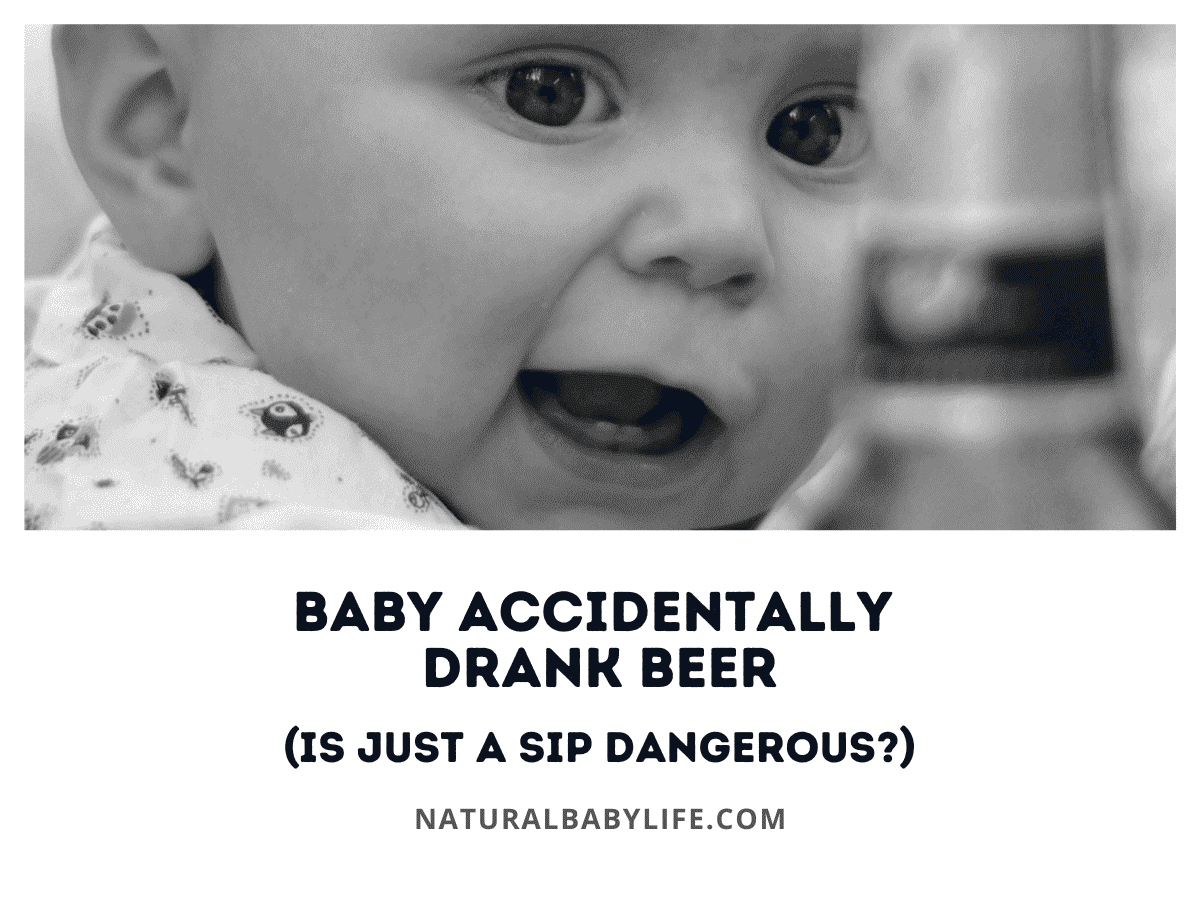Giving your baby solid food for the first time is exciting and many new parents likely have questions about when and how to feed their baby apples. While they make great early baby food, it’s important to understand a few details about apple baby food.
Parents can feed their baby raw apples starting at around 8 months when your baby is more comfortable with firm solid foods. Peeled, cooked, and pureed apples can be introduced at around 4-6 months. Apples are a nutritional addition to a baby’s diet but limit servings to one per day due to excess sugar content compared to other early solids.
In my house, all of my babies have loved apples and we enjoy making homemade applesauce or handing them out as snacks to our older girls. Let’s explore the best time to introduce apples to your baby, the best way to prepare them by age, and the nutritional benefits that apples provide!
Table of Contents
When can babies eat apples for the first time?
Babies can be introduced to solid foods at around the age of 4 months (for formula-fed babies) or 6 months (for breastfed babies). Most parents usually start with tasty fruits such as bananas to make sure that their baby will enjoy their first meal. Some parents also say that you should start with a ‘less tasty’ vegetable for your baby’s first meal so they won’t get a sweet tooth too early.
Babies can eat peeled, cooked, and pureed apples for the first time at around the age of 4-6 months and can make an excellent ‘first solid’ for babies transitioning from breastmilk or formula.
As we’ll discuss later, the biggest thing about giving apples to your baby is that you use the proper preparation for her age. In the beginning, babies can’t chew or swallow solid foods very easily and they can’t really handle foods that they have to bite.
As a result, your baby will likely need to eat her apples pureed when she has them for the first time. Peeled and boiled apples become very soft and they can easily be pureed in a blender or food processor!
The nutritional breakdown of apples
Apples are considered a very healthy food for babies, in moderation! Here is a complete breakdown for your average medium apple:
- Calories: 95
- Total fat: .3 grams (.1g saturated, .1g polyunsaturated, 0g monounsaturated)
- Total Carbohydrates: 25 grams (4.4 grams fiber, 19 grams sugar)
- Protein: .5 grams
- Sodium: 1.8 mg
- Cholesterol: 0 mg
- Potassium: 195 mg
- Vitamin A: 2% of daily value (DV)
- Vitamin C: 14% of DV
- Calcium: .8% of DV
- Iron: 1.2% of DV
Source: Nutritionix
In addition to their macro breakdown and vitamin content, apples also have a couple of things in them that help with other aspects of health. According to the Harvard School of Medicine, apples also contain:
- Quercetin – an anti-inflammatory and antioxidant
- Pectin – a type of fiber that could help lower LDL (the ‘bad’ cholesterol)
Overall, apples are a great addition to a healthy diet. Help your baby get started on the right path early!
How to feed apples to your baby by age
I’ve mentioned already that how you feed apples to your baby is almost as important as when you do it. To help, I’ve created a little cheat sheet that you can check out to see when, how and how many apples you should be serving your baby by age group! The information about serving sizes for infants and toddlers was gathered from the Florida Department of Health
Apple servings by age
| Baby or Toddler Age | Best way to prepare/serve apples | A serving size of fruit (such as apples) per day |
|---|---|---|
| 4 to 8 months old | Boiled apple puree | 4 to 8 tablespoons (about one half to a whole apple) |
| 8 to 12 months old | Boiled apple puree | 1/4 to 1/2 cup (about 1 to 1.5 apples) |
| 12 to 16 months old | Boiled apple puree or peeled chunks of raw apple | 1/4 to 1/2 cup (about 1 to 1.5 apples) |
| 16 to 24 months old | Boiled apple puree or chunks of raw apple (with or without peel) | 1/4 to 1/2 cup (about 1 to 1.5 apples) |
| 2 to 5 years old | Cut up apple (with peel) or whole apples | 1/2 cup (about 1.5 apples) |
The best way to give apple to your baby for the first time
First-time apple eaters should get an apple puree made from peeled, boiled apples. This is both the safest method for your baby to eat as well as the easiest for her stomach to digest.
To make the boiled apple puree, you’ll need to follow these steps:
- Buy fresh apples – organic is best since apples are on the ‘dirty dozen’ list!
- Wash and peel the apples
- Core and chop up your apples into small chunks
- Boil water in a saucepan and then reduce to a low boil
- Add apple chunks and cook until tender (about 10 minutes)
- Drain and rinse the apples with cold water (for about 3 minutes)
- Puree the apples in a blender or food processor until smooth (you shouldn’t need to add water)
If you would rather steam your apples, here is a great video to show that process!
Benefits of boiled apple for babies
Although boiling does cause apples to lose a bit of their nutritional benefit, it’s still the best way to go for young babies that are eating apples for the first time.
Boiling the apple not only softens the fruit and allows babies to handle and chew it more easily, but it also breaks down the solid fibers inside the meat of the apple, allowing immature baby stomachs to digest them a little more easily.
Raw apple and apple skins, meanwhile, are not only more difficult to digest but also trickier for babies to bite, chew, and swallow. In the beginning, we want to make things as easy and safe as possible for our little ones!
How to cook apples for baby-led weaning
Baby-led weaning is all about letting babies explore new tastes, scents, and textures of whole, natural food on their own rather than being spoon-fed a puree from a baby food jar.
This system works great for lots of different foods assuming that they are soft enough to smash them with gentle pressure. Soft foods are less likely to become a choking hazard for your baby and they are more fun for them to eat because they can handle them and change their shape while eating.
Since apples are naturally hard and have a tough skin around them, that means you’ll need to peel and cook your apples before serving them to baby during baby-led weaning.
You can follow the same steps above for the best way to serve apples to your baby for the first time to get a nice boiled apple puree that your baby can taste. If your baby is ready, you could also just take the boiled apples, let them cool, cut them up into smaller pieces, and let your baby go after them that way!
Can I serve raw apple puree for my baby?
If you don’t feel like going through the whole process of peeling, boiling, pureeing, and cooling your apples (and I totally understand that!), then you might be wondering whether or not you could just skip it and make a raw apple puree for your baby.
Once your baby is about eight months old, she should be able to digest raw apple (even with the skin) easily enough that you could consider making raw apple puree for her to eat.
The process is pretty similar to making boiled apple puree, but there are still a few details that you will need to keep in mind. The video below is a great instructional on how to make raw applesauce, but you will probably want to skip all of the extra stuff that she adds into the recipe at first.
Since apples are generally one of the first foods that you’ve introduced to your baby, it’s unlikely that she’s tried the other foods and spices.
Introduce any new foods or spices to babies one at a time, about three days apart, and be sure to keep an eye out for any intolerance or allergic response!
When can a baby eat a raw apple whole?
The biggest issue with babies eating raw apples, or any raw vegetable or fruit for that matter, is that they can be a choking hazard. While babies learn to chew and swallow pretty quickly, they often don’t understand that they should take smaller bites and finish chewing the bite they have before taking another!
According to Children’s Healthcare of Atlanta, your baby should be able to handle thin slices of apples by around the age of 18 months. This varies by child, however, and you will need to observe your baby to be sure that he:
- Can chew food well
- Has his first set of molars
- Can take ‘just right’ sized bites of food
Personally, I am always on high alert whenever my child is eating anything that could become a choking hazard. My wife is even more cautious – if it was up to her, our nine-year-old girls still wouldn’t be eating suckers or hard candies!
Can a baby eat too many apples?
Although apples are incredibly good for your baby to eat, it is possible to have too much of a good thing!
If you check the chart above, you’ll see that I have a recommended serving size of fruit there for each age group. Ideally, you’ll stick to just one serving of apples per day and mix in other foods to form a more complete diet!
Why?
First, apples have quite a bit of sugar in them. Babies, or adults for that matter, shouldn’t have too much sugar in their diet because these empty calories can lead to weight gain and spiking blood sugar. As long as apples are eaten in moderation and the rest of your baby’s diet is on point, this isn’t a huge concern. Still, it’s something to keep in mind!
Second, apples have quite a bit of fiber. Fiber is great for babies, especially when they are just starting out with solid foods, but too much can lead to stomach upset or even diarrhea. With that in mind, feel free to supplement a little more apples into your baby’s diet if her stools are hard!
A possible third issue is not really a problem with apples, per se, but more so with the variety in your baby’s diet. Since apples have a sweet taste that most babies love, it can be difficult to get them to try more new foods like vegetables if they are constantly getting sweet things. Anecdotally, many parents and even pediatricians will tell you to make sure that you give your baby vegetables before you let them taste fruits to try and prevent this from happening. In reality, there isn’t really any evidence that this strategy works because babies are born with a preference for sweets and introducing foods in a different order isn’t likely to change things in the long run.
A great way to ensure a little more variety in your baby’s diet is to pick up some baby food pouches that mix other foods together with avocados. In our house, we absolutely love the Happy Baby Organics baby food pouches and they have a delicious apple, kale, and avocado mix that you can find right here.
How much apple or apple puree can I give baby?
Just like whole apples, apple purees will have much of the same sugar and fiber content. That means that you should follow the same recommendation that I listed above – just be sure to do a little quick math to determine how much apple your baby is getting through the puree. Since it is easier for baby’s to eat pureed foods, they can eat a large amount quicker than you think!
Do apples help baby constipation or cause it?
This question is a bit wishy-washy in the answer because it depends on how you are serving the apples.
Peeled and boiled apple puree loses a lot of the fiber found in a natural, whole apple. With this fiber loss, things like applesauce can actually lead to constipation in babies if you feed it to them too much.
Conversely, feeding whole apples or apple slices with the peel still on to older babies can help soften their stools and relieve constipation!

